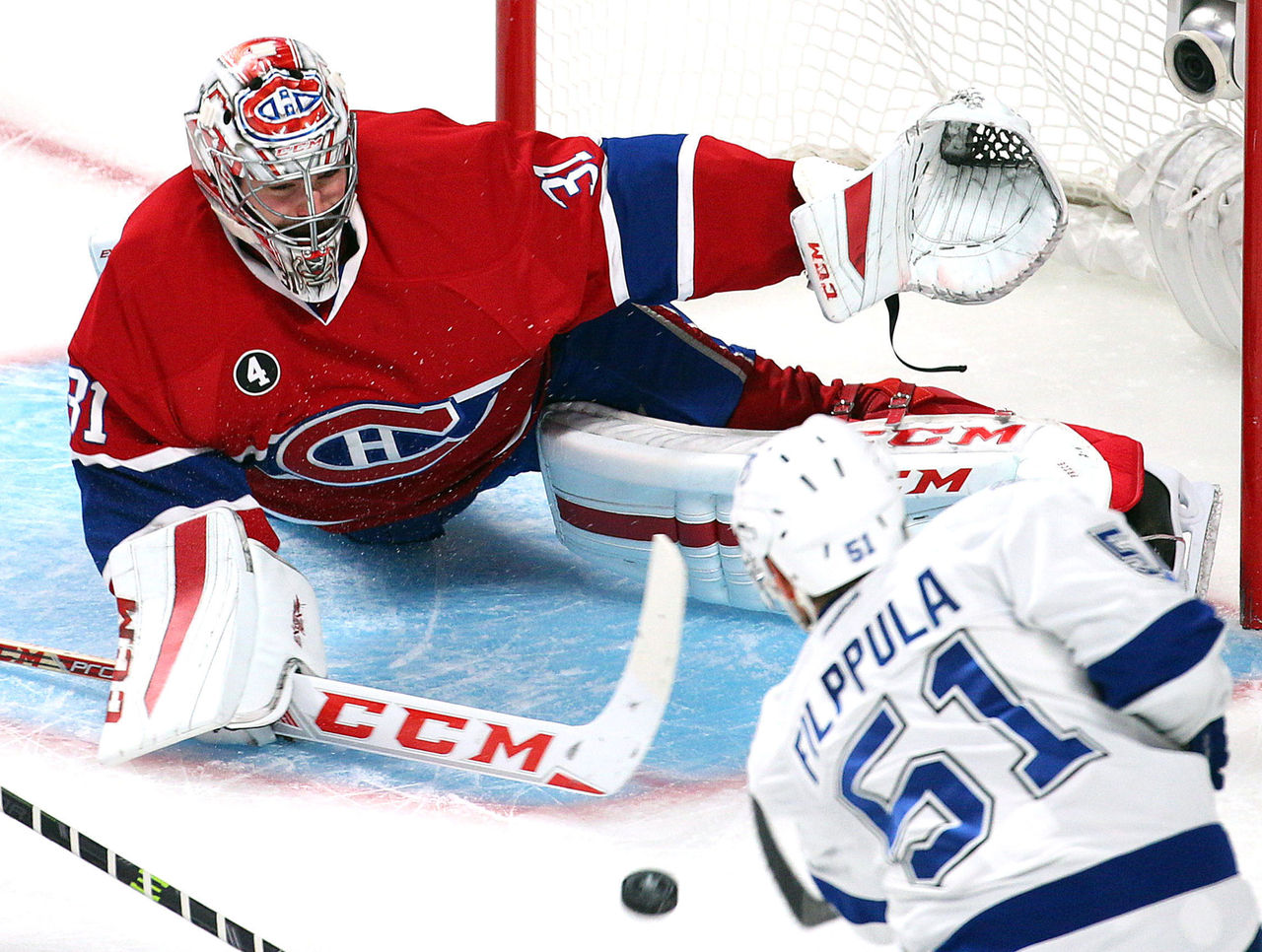DFS: Cash Game vs. GPP Lineup Construction in NHL Contests
As with other sports, NHL DFS games involve filling out your roster within the limits of a salary cap.
The two most popular formats are cash games, also known as 50-50s or double ups, and GPP (guaranteed prize pools), also known as tournaments. Let's describe each type of game in more detail.
Cash Games
A designated number of participants win a prize equal to double the entry fee, while the rest receive nothing. It's not always a 50-50 distribution; the company hosting the game has to take its cut somewhere, so in a game limited to, say, 5,500 entrants, the top 2,500 scorers may be awarded a prize.
Still, the goal is the same: a player wants to finish among the winning number of entrants. Using the example above, whether a player has the best score or the 2,500th-best score is irrelevant - the prize is the same. For this reason, the most common strategy in cash games is to make safe choices.
Taking a flyer on a "sleeper" is great if it pans out, but keep in mind the risk vs. reward proposition. The risk is great that the selection won't pan out, and the reward isn't going to change even if it does. It's best to play it conservative in this format, and save the gambles for tournament play, which will be discussed later.
When filling out your roster for cash games, here are a few things to consider to optimize your spending:

Pick a goaltender whose team is likely to win. DFS games typically award points for goaltender wins, and while goalies usually also receive points for saves and shutouts and are docked points for goals allowed, those categories are harder to predict on a game-to-game basis. Stick to a selection from a team that you feel will win that night; even if you choose incorrectly, you'll have the save points to fall back on.
Picking the obvious choice is the safe play here (like the goalie from the best team in the league in a home game against the worst team in the league) - as many other participants will likely do the same, reducing your risk.

Don't spend too much money on players from the same team. "Stacking" is a strategy that can pay off when a team explodes offensively, but it can also blow up in your face, and in cash games, it's safest to diversify and spread the risk around. Granted, this may not always be possible on nights where there are only a handful of games going on, but you can probably identify which teams most entrants are going to choose their players from, especially when a lopsided-looking matchup is scheduled.
A budget-friendly tactic if you absolutely must pick multiple players from the same club is to try and identify the "third wheel" on a powerful line, such as Alex Burrows alongside the Sedins in Vancouver or whoever plays with the expected Sidney Crosby / Phil Kessel combo in Pittsburgh. In years past, Pascal Dupuis and Chris Kunitz struck fantasy gold riding shotgun on a line with Crosby or Evgeni Malkin.
These players will come cheaper than the superstars and can be expected to luck into some points by virtue of sharing the ice with them - think secondary assists. Rather than picking two stars on the same line or power play unit, choose a star and a more lightly-regarded option to free up some money elsewhere.

Look for players who provide you with a consistent source of fantasy points, even if they aren't goals or assists. Brooks Orpik has never been known for his offense, so he's likely to be among the lowest-priced defensemen options. Still, in leagues where points are awarded for blocked shots, Orpik has some value, as he racked up 192 in 78 games last season, an average of 2.46 per game.
While Orpik's teammate John Carlson offers a complete package of blocks (200 in 82 games, 2.44 per game) and traditional scoring (12 goals, 43 assists), he's also likely to be a lot more expensive than Orpik, who only put up 19 points (all assists) last season. Orpik gives DFS owners a concrete source of blocks and a roughly 25 per cent chance of chipping in a point, all at a low price.
DFS games are also likely to award points for shots on goal, so that means players like Alexander Ovechkin, who pile up the goals and assists as well as fire away indiscriminately (a league-leading 395 shots in 81 games last year), are seemingly created in a lab for this scoring system.
Of all the non-defensemen who finished last season with fewer than 50 points, Montreal's Brendan Gallagher had the most shots on goal, with 254 in 82 games, an average of 3.10 per game. Nashville's Craig Smith had 252 in 82 games, an average of 3.07 per game.
Gallagher and Smith finished with 47 and 44 points, respectively, but offer more value in DFS games than their point totals would indicate due to their propensity to put the puck on net.
Don't sweat the small stuff. Some formats award points for shootout goals, but with the NHL's introduction of three-on-three overtime this season, games will be less likely to even get that far, so don't stress out trying to pick players you think have a chance of being chosen for the "skills competition." Likewise, shorthanded points are hard to predict, so don't fill your rosters with penalty killers in hopes of lucking into a potential bonus point.
Guaranteed Prize Pools (GPPs)
Like in cash games, tournament play awards prizes to a designated number of entrants - the difference is that in this format, the prize amounts vary according to order of finish.
While it's desirable to have a few safe, consistent options on a roster to ensure that something of value is won, you also want to make a few choices that will set you apart from the field, like selecting that heretofore unknown minor league call-up who you know will bring his free-scoring ways to the pros, at least for one game.

Look at the matchups for the day, and choose players from games that are predicted to be high-scoring. The Vegas over/under total is a good place to start in this regard, instead of relying solely on gut feel. Stacking players from a certain high-scoring line or power play unit, while risky in cash games, can separate you from the rest of the field if your choices pan out.
Keep an eye on injuries and late scratches, as if they happen to a player on a top line or power play unit, their ice time will have to be replaced by someone. If you can identify a lightly-regarded player who will step up into a prominent role, even if only for one game, you will likely receive more value than you would have otherwise at a lower price point. As well, it goes without saying that if a player you've chosen is a late scratch due to an injury in warmups, you want to get them out of your lineup before the deadline.
A "stars and scrubs" lineup is more beneficial than a balanced lineup in tournament play, where the goal is to try and finish with as high a score as possible. The thinking behind this strategy is that your high-priced stars - Ovechkin, Steven Stamkos, Erik Karlsson, etc. - will perform at levels commensurate with their costs, so if you make astute choices with the cheaper players in your lineup, you'll finish high atop the standings.
Of course, this approach is riskier than selecting an entire squad of mid-priced players, but again, the goal is to have a higher score than most (if not all) of the field.